Types of Hay
Nutritional differences in hay
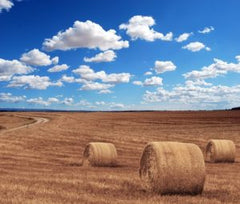
Calcium and phosphorus
The ideal calcium: phosphorus ratio if approximately 2:1. Alfalfa hay is higher in calcium than grass hay, whereas grass hay is higher in phosphorus. The average alfalfa hay calcium: phosphorus ratio is 5:1, whereas many grass hays range 1:1-2. The exception is timothy, with favorable calcium: phosphorus ratio of approximately 2:1. Therefore, if you aren't feeding timothy grass hay, you should balance the diet by feeding both types a grass hay and alfalfa, or by feeding a ration balancer, such as a complete supplement like Horse Guard. The proper calcium: phosphorus ratio to especially important for pregnant and lactating mares, and growing horses.
Trace minerals and vitamins
Grass hay is typically low in zinc, selenium, vitamin E, vitamin C and vitamin A. Vitamins in all types of hay are very volatile. Research has shown that vitamin A in fresh forage decreases by half after curing and baling. Furthermore, vitamin E decreases up to 80% after hay has been stored for 6 months. For these reasons, it is important to feed a vitamin-mineral supplement, like Horse Guard, to balance the gaps in your horse's hay, no matter what type of hay you are feeding.
Protein, Fiber, and Sugars
Alfalfa hay is usually the highest in protein and energy, with 15-22% crude protein. The average adult horse requires 10-11% crude protein in their overall diet. The excess protein in alfalfa is broken down into carbohydrates and used as an energy source. This is the reasoning behind "alfalfa makes my horse hot."
Grass hays range from 8-14% crude protein. Cool-season grasses are typically higher in crude protein than warm-season grasses. They are also higher in sugars than warm-season grasses, which makes them more palatable to most horses. Warm-season grass hays are usually the most fibrous, which makes it great hay for the "easy-keeper" because they can consume more but not get too many calories.
Considering your horse
When choosing hay for your horse ask yourself a few questions.- What body condition is my horse in?
- What workload is my horse getting?
- Is my horse healthy or does he have any pre-existing conditions that need to be considered?
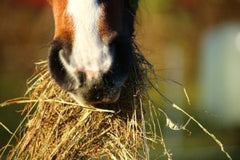
Determining the answers to these questions will help you to pick the best hay for your horse. If you are buying your hay from the feed store, they may have % crude protein and digestive energy of the hay, which will help to pick the hay that best caters to your horse's needs. Remember, that your horse will do best if he can have access to hay continuously, so don't pick hay that you can only feed a small amount in order to maintain a healthy weight. Feed Horse Guard vitamin-mineral supplement with your hay to fill the nutritional gaps in your hay. Hay is the foundation to your horse's diet, so make sure it will help to achieve the optimal health for your horse.

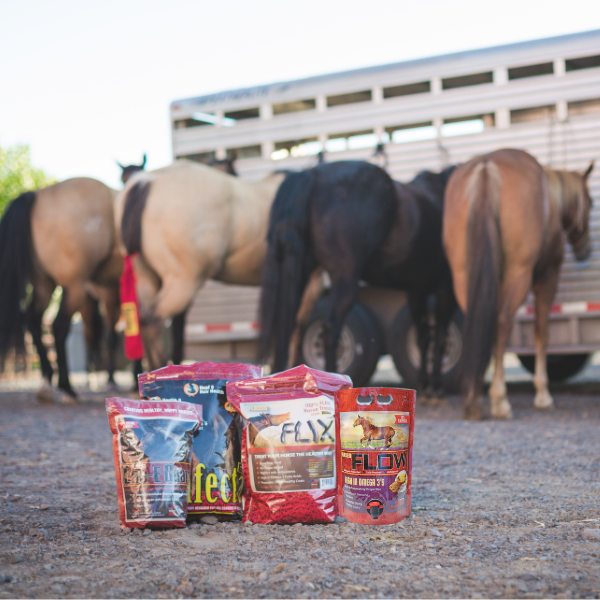
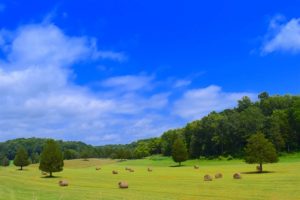


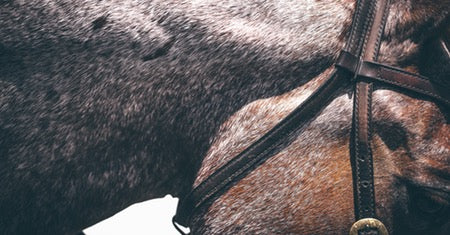

Leave a comment (all fields required)